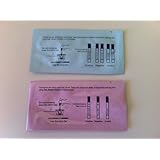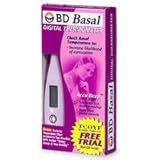So you think you’re pregnant?
Most women begin to suspect they are pregnant after they skip a period, and while pregnancy is the most likely cause of the missed period; it is not the only one. Be sure to check with your doctor if you believe you are pregnant.
Other signs that you may be pregnant
There are other signs that help you to see that you may be pregnant. They include frequent trips to the bathroom, nausea with or without vomiting (particularly in the morning), increased feelings of exhaustion, new food cravings or aversions, tenderness or swelling of breasts, constipation, headaches, increased feelings of faintness or dizziness, slight bleeding or spotting or cramping, an elevated basal body temperature, and mood swings. It is important to realize that not all women experience these symptoms and that you should not rule out that you are pregnant simply because you don’t show ALL of these signs.
Frequent trips to the bathroom, are common during pregnancy. Many women notice this even before they skip a period, even as early as two weeks after conception. The additional trips to the bathroom are caused by a pregnancy hormone called human chorionic gonadotropin (hCG). This hormone causes changes in muscle tone, this, along with the growing uterus, puts pressure on the nearby bladder causing increased urination. This increase is most common during the first eight weeks of pregnancy, after which the uterus tends to move higher in the body which takes the pressure off of your bladder, until later in the pregnancy. The increased rate of urination may also be caused by a urinary tract infection, diabetes, increased fluid intake, or tension or stress exerted on the body.
Nausea, typically referred to as morning sickness, although many women find that they feel nauseous throughout the day and not merely in the morning, is a very good indicator that you may be pregnant. The queasy feeling that most women develop seems to stem from the extra estrogen in the body, which causes the stomach to empty slower, but another cause might also be the woman’s heightened sense of smell. The heightened sense of smell causes women to be more likely to notice various odors, such as cigarette smoke, certain foods, or colognes and perfumes, which may bring on a wave of nausea. Ways to counteract the nausea include: Getting out of bed slowly and not making any to sudden movements, eating smaller, but more frequent meals during the day, eating crackers, bread or other complex carbohydrates when you feel nauseous, eating colder foods, avoiding spicy, greasy or fried foods, sipping carbonated beverages, snacking on fruits and vegetables during the day, and getting lots of fresh air by either taking a walk out of doors, or by sleeping with a window open so that a breeze may hit you. Other causes of nausea include: food poisoning, flu, excess stress or tension on the body and a number of other diseases.
An increased feeling of tiredness is caused by the increased level of the hormone progesterone, and in high enough doses, progesterone can cause the need for extra sleep. The other thing to remember is that there is a fetus developing inside you and is draining your energy in the process, this is the other main cause of the fatigue during pregnancy. The best thing to do about the fatigue is to give into it. Take naps and rest up, lack of sleep can make you unhealthy and it is important for both your sake and that of you baby’s to remain healthy. Other things that cause fatigue include: increased stress or tension, irregular sleeping patterns, depression, poor diet, or maybe the flu.
New food cravings or aversions, like most other things that occur during your pregnancy, are caused by new or increased amounts of your hormones. While you’re pregnant you might find yourself having odd or new cravings for foods that you may not usually eat or even foods that you did not really enjoy before. You may also find yourself getting nauseous because of the taste or smell of foods you do generally eat, especially things like coffee or fried foods. Food cravings may also be because you are about to be begin your period, you have a poor diet or if you under stress.
Swelling or tenderness of your breasts, also caused by the hormones estrogen and progesterone, can occur during pregnancy, even as early as the first two weeks after conception. Your beasts may feel, tender, sore, or tingly and may also feel larger and heavier. This pain should decrease, if not disappear after about the eighth week of pregnancy, when your body has had time to become used to the increased levels of hormones in your system. During this time, you may also notice that your areolas (darkened skin around the nipples) have become darker in color. The changes you feel in your breasts are generally the most dramatic the first time you are pregnant. Other causes of breast tenderness include reactions to birth control, fibrocystic breast condition, or the beginning of your period.
Constipation is one of the early indicators that you are pregnant. The increase in the hormone progesterone, which causes the food to pass more slowly through the intestines, causes constipation.
Headaches, caused by the encased amount of blood flow due to the extra hormones in your body, occur mildly during the beginning of pregnancy.
Increased feelings of faintness or dizziness are common in pregnancy because your blood vessels are dilating and you blood pressure is dropping. Also, especially in the beginning of your pregnancy, your blood sugar may drop, causing dizziness or the feeling of faint.
Slight bleeding or spotting or cramping is common at the beginning of pregnancy. This is also known as implantation bleeding, because it occurs after the egg has been fertilized and is attaching itself to the uterine lining. The bleeding is generally lighter in color and spottier than the normal period and does not last long. Some women also experience cramps at the beginning of pregnancy. These are very similar to your menstrual cramps. Other causes of this type of bleeding may be the beginning of your period or it might just be breakthrough bleeding caused by the pill.
Elevated basal body temperature (BBT) may signal that you are pregnant. Your BBT is the temperature of you body at rest or when you first wake up in the morning. You BBT rises when you start to ovulate and remains raised until the end of your period. An elevated BBT that lasts consistently for two weeks may mean that you are pregnant. In fact, your BBT will remain hgh throughout your entire pregnancy.
Mood swings are caused by the increased amount of hormones in your body and may cause you to be especially emotional or weepy. These are very common among women and tend to be most prominent during the first trimester of pregnancy.
Remember women have been known to have all, some, or even none of these symptoms while pregnant. Do not rule out pregnancy because you don’t have ALL of the symptoms and if you think that there is the chance you may be pregnant, go take a pregnancy test that can be purchased at most drug stores or go and see your doctor for the most accurate results.



